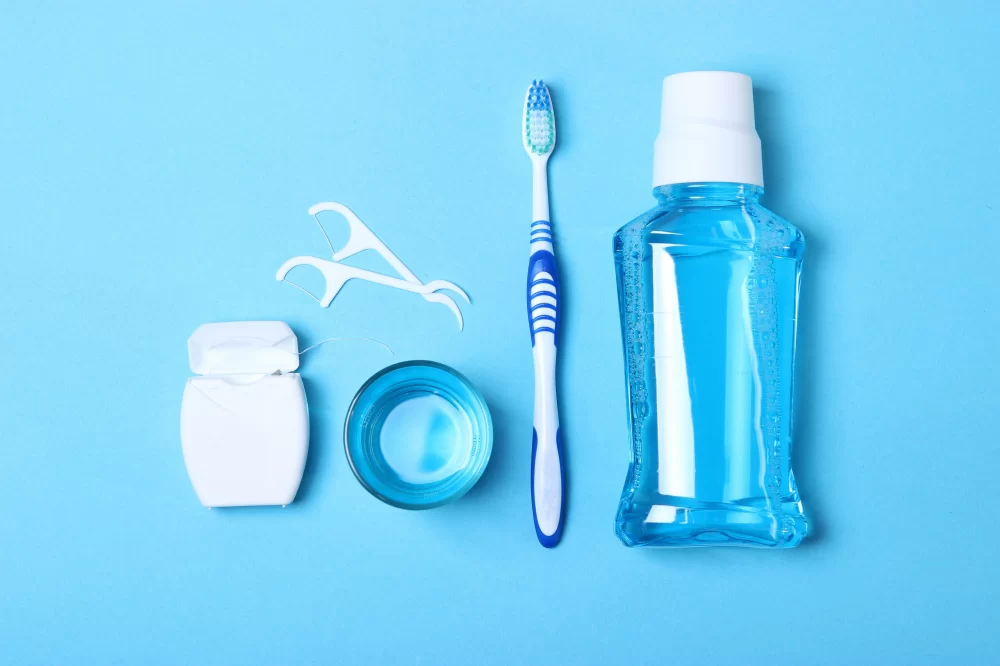
Choosing the Right Oral Care Products for Healthy Teeth
When it comes to maintaining good oral hygiene, choosing the right oral care products is essential. I vividly remember the time when I was struggling to find the best toothpaste and toothbrush that worked for my teeth. It took me some trial and error, but over the years, I’ve learned how important it is to select the right products based on your specific needs. Whether you're dealing with sensitive teeth, whitening concerns, or looking to maintain a healthy smile, the right oral care products can make all the difference.
1. Understanding Your Oral Health Needs
The first step in choosing the right oral care products is understanding your specific dental needs. I’ve learned that not every product works for everyone. For example, when I was younger, I didn’t realize that I had sensitive teeth until I started experiencing sharp pain when drinking cold or hot beverages. This led me to explore toothpaste designed for sensitive teeth, which made a significant difference in managing the discomfort.
If you have specific concerns like gum disease, cavities, bad breath, or tooth sensitivity, there are tailored products for each issue. Ask yourself these questions:
- Do I have sensitive teeth?
- Am I prone to gum disease or bleeding gums?
- Am I looking for a whitening product?
- Do I have any dental work like crowns or fillings?
Once you assess your needs, you can select products that are specifically formulated for those issues, making your oral care routine more effective.
2. Choosing the Right Toothbrush
The toothbrush is arguably the most important tool in your oral care arsenal. I used to think that a hard-bristled brush would give me a better clean, but over time, I realized that it was actually damaging my gums and enamel. After consulting with my dentist, I switched to a soft-bristled toothbrush, which was gentler on my gums and helped reduce the risk of enamel erosion.
Here are a few tips for choosing the right toothbrush:
- Brushing Surface: Choose a toothbrush with soft, rounded bristles. Hard bristles can cause gum recession and damage your enamel.
- Size of the Brush Head: A small to medium-sized brush head works best for reaching all areas of your mouth, especially those hard-to-reach spots at the back.
- Manual vs. Electric: I personally love using an electric toothbrush because it’s more efficient at plaque removal and it does most of the work for me, but a manual brush can be just as effective if used properly.
It’s essential to choose a toothbrush that suits your personal preferences, as well as any special dental needs you may have. If you’re unsure, your dentist can provide personalized recommendations based on your oral health.
3. Selecting the Best Toothpaste for Your Teeth
Choosing the right toothpaste is just as important as picking the right toothbrush. There are so many options on the market, and it can be overwhelming to know where to start. After trying several types, I realized that choosing toothpaste isn’t just about picking a popular brand—it’s about finding one that addresses your unique needs.
Here’s a breakdown of different types of toothpaste and their benefits:
- Toothpaste for Sensitive Teeth: If you experience discomfort when consuming hot or cold foods, look for toothpaste specifically designed for sensitive teeth. These usually contain ingredients like potassium nitrate or stannous fluoride to help soothe nerve endings.
- Whitening Toothpaste: For those looking to brighten their smile, whitening toothpaste is a great option. However, I’ve found that these can sometimes be abrasive, so it’s important to use them in moderation to avoid damaging your enamel.
- Anti-Cavity Toothpaste: If your primary concern is preventing cavities, go for toothpaste that contains fluoride. Fluoride strengthens tooth enamel and helps prevent tooth decay.
- Gum Health Toothpaste: Some toothpastes are formulated to help with gum health, reducing inflammation and preventing gingivitis. If you’re prone to gum disease, this might be the right choice for you.
It’s crucial to choose toothpaste that is appropriate for your age, dental condition, and personal preferences. If you're unsure, your dentist can help you select a suitable product.
4. Don’t Forget the Mouthwash
After brushing and flossing, I always use mouthwash as an extra step in my oral hygiene routine. Mouthwash is an effective way to rinse away bacteria and freshen your breath, and it can provide additional protection against tooth decay and gum disease. However, not all mouthwashes are created equal, so it’s important to choose one that fits your needs.
Here’s what to look for:
- Alcohol-Free Mouthwash: If you have a dry mouth or sensitive gums, I recommend using an alcohol-free mouthwash, as alcohol can be irritating and cause further dryness.
- Antiseptic Mouthwash: For those who need additional protection against bacteria and plaque buildup, antiseptic mouthwash can be an excellent option.
- Fluoride Mouthwash: If you're prone to cavities, fluoride mouthwash can help strengthen your enamel and prevent decay.
While mouthwash isn’t a replacement for brushing and flossing, it’s an excellent addition to your oral care routine for added protection.
5. Consider Additional Tools for Your Oral Care
While a toothbrush, toothpaste, and mouthwash form the core of your oral care routine, there are other tools that can make a significant difference in your oral health. I personally swear by dental floss and a water flosser. Here are some additional tools to consider:
- Dental Floss: Daily flossing is essential for removing food particles and plaque from between your teeth, where your toothbrush can’t reach.
- Water Flosser: A water flosser is a great option for those who find traditional flossing difficult. It uses a stream of pulsating water to clean between your teeth and along the gumline.
- Interdental Brushes: These small, brush-like tools are perfect for cleaning between teeth, especially if you have braces or other dental work.
Incorporating these tools into your routine can help you achieve a more thorough clean and maintain better oral health in the long run.







 Baldwin Cosmetic Dentistry2.0 (4 review)
Baldwin Cosmetic Dentistry2.0 (4 review) Inglewood Family Dentistry5.0 (118 review)
Inglewood Family Dentistry5.0 (118 review) Rossy Pediatric Dentistry4.0 (318 review)
Rossy Pediatric Dentistry4.0 (318 review) Silicon Valley Center for Cosmetic Dentistry: Gabriel Cano, DDS4.0 (86 review)
Silicon Valley Center for Cosmetic Dentistry: Gabriel Cano, DDS4.0 (86 review) Universal Dental Implant Center4.0 (11 review)
Universal Dental Implant Center4.0 (11 review) Sea Mar Community Health Centers - 11th St3.0 (55 review)
Sea Mar Community Health Centers - 11th St3.0 (55 review) The Importance of Oral Health Education During Pregnancy for a Healthy Pregnancy
The Importance of Oral Health Education During Pregnancy for a Healthy Pregnancy Best Tips for Brushing Your Teeth Properly for Healthy Gums: Essential Techniques for Oral Health
Best Tips for Brushing Your Teeth Properly for Healthy Gums: Essential Techniques for Oral Health Why Skipping Dental Checkups Can Lead to Bigger Oral Health Problems
Why Skipping Dental Checkups Can Lead to Bigger Oral Health Problems Advantages of Porcelain Dental Restorations
Advantages of Porcelain Dental Restorations How Can Diabetes Cause Tooth and Gum Problems? Preventing and Managing Oral Health Issues
How Can Diabetes Cause Tooth and Gum Problems? Preventing and Managing Oral Health Issues Healthy Habits for Promoting Good Oral Health and Hygiene: Tips for a Healthy Smile
Healthy Habits for Promoting Good Oral Health and Hygiene: Tips for a Healthy Smile